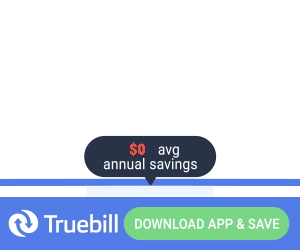Reading time: 15 minutes
This post may contain affiliate links. If you click these links and purchase something we may earn a commission. This helps us provide the information here free of charge to you. Continue Reading.

The majority of traditional budgeting websites will tell you that the easiest way to trim your budget is to eliminate all of the little luxuries you indulge in each day.
The idea is that you spend so much money each and every day on little non-essential things, that over time it can add up to a large amount that you should be saving.
While there is no arguing that cutting out the unnecessary coffee trips each morning will save you money, there are also ways to budget your money where you can still enjoy those little things. You are more likely to keep up with budgeting if you get to treat yourself to the things you want to purchase, just in a smarter way.
Rethinking your spending strategy can allow you to enjoy those little moments each day while also being smart about your money. This article will hopefully help you keep that morning Starbucks order, while still saving money over time.
Remember: Saving something is better than saving nothing!
Debt Snowflake:
Before we get into the different aspects of your spending, it’s important to understand a concept called debt snowflake. This is the process of paying off debt by capturing small savings throughout your day and saving them towards absolutely necessary expenses (such as high-interest credit card bills).
Those tiny daily savings — like ordering just a hamburger instead of the entire meal, or getting a medium coffee instead of a large one — will add up over time. It’s easy to see these kinds of options in restaurants and coffee shops as a way to get more for your money, but at the end of the day you still end up paying more money, even if it is a better value for the price.
With this budgeting concept, debt snowflakes, the key is to save all of those little differences, and by the end of a predetermined time period, all of those ‘snowflakes’ have added up to a large sum of savings to put towards any outstanding bills or debt.
Just like we mentioned, smaller savings that are collected over time can have a big impact on your finances. Below are some of the ways you can use this budgeting policy in a practical way, in many aspects of your life, and can utilize daily to start tracking your money and saving today – all without completely changing your lifestyle.
Track Your Food Expenses
One of the fastest and easiest ways to enact a savings plan is by limiting your eating out budget and spending. This can include everyday conveniences like getting coffee on your way to work every morning to something necessary like dinner each day. Both are something we probably all do, and both have different ways of saving some extra money.
Let’s talk about how most of us start our mornings, with a hot (or iced) cup of coffee if Mary buys a coffee each morning on her way to work for $4, that adds up to about $20 a week. In a month, that coffee habit will cost her $80 each month, which could be going towards paying off a debt or paying a bill. There are a few ways to decrease the cost of her coffee each morning while increasing the savings.
Two Ways To Decrease the Cost of Coffee
- Every day if Mary buys a large coffee at $4 dollars, she could start ordering a medium for $3. While this may not seem like a big difference, she can be saving over $20 each month ($240+ for the year), with her new monthly coffee budget coming in around $60. Just by making that one dollar difference, it adds up.
- Alternatively, she could limit her coffee ordering out to just a few times a week and invest in a nicer coffee maker to have at her house. While it may be difficult to justify the price of a coffee maker all at once to a few coffees, in the long run, she will save more money-making her coffee at home for herself, even if it is just a few times a week.
Try to think about the amount of food that is eaten outside of your home. Whether it is fast food or food at a sit-down restaurant, the convenience of food that you don’t have to spend time making and grocery shopping for can add up. Keep in mind we are not saying to cut out that social hour with your friends at your favorite restaurant, but more like setting a realistic spending amount each week on food.
Going back to our Mary example, if she eats her lunch each day from her favorite fast food place for $10, she would be spending about $50 every workweek just on lunch. Over a month, that can run her $200 each month only on eating lunch. We are sure this example can be applied to your lifestyle in some way, so here are some options that can help trim spending just by changing your dining habits.
Limit Your Eating Outside to Save Money Without Affecting Your Lifestyle
For example, if your family of four loves to eat out around three times a week at an average of $80, over a month, that total will be $960. If you limit your eating outside spending to only once a week and choose to make your own meals from the grocery store, you could save an incredible amount of money.
$5 Dollar Plan Meal
$5 Dollar Meal Plan: There are plenty of food delivery services that will do the grocery shopping and meal planning for you, and our favorites come from the guys and gals at $5 Meal Plan. Each week they will email you up to 7 dinner recipes, bonus lunch, breakfast, and dessert recipes, as well as a shopping list for the grocery store. This takes the guesswork and time out of preparing your meals each week. There are also options for gluten-free meal plans that you can choose from. Signing up can get you a free 2-week classic meal plan sent directly to your email so you can start saving money right now.
Cost-Effective Grocery Stores
Cost-effective grocery stores are another option to curb that food spending budget. A little bit of work upfront is required, but over time can lead to a large amount of spending. Start by creating a list of the staple items you regularly buy from a grocery store (milk, eggs, bread, fruit, etc.), and from there, do your research to find the stores that offer the lowest prices on those everyday items. Comparing your receipts is a good way to figure out the cheapest stores to shop at. Once you have found that grocery store, limit the majority of your staple food shopping to that one place, and over time you can end up saving a lot of money just by changing where you shop.
Finding that perfect weekly spending limit on food will differ based on location and the size of your family, but a good way to get an idea of what you spend is by looking at your past bank history. From that point, you can start budgeting and finding ways to cut down on the amount of money you spend each month on food and eating/ drinking each month.
Starting with this category is one of the fastest ways to start setting aside money from your spending, because eating is something we all do. You can trim as little or as much as you want, so you are in control of how it affects your life.
Remember, we aren’t saying that you need to stop going to happy hour or stop eating out altogether. But we are saying that if you made a conscious effort, you could easily save hundreds or thousands each year on food and drinks alone!

How to Save Money on Insurance
Another necessity in your monthly budget costs for insurance (health, car, and home). Now, I know what you’re thinking “Insurance is something I MUST pay, how can I cut out insurance spending?”
If you currently are signed up for insurance plans, you should take the time to compare the price you are currently paying with competitor rates.
By simply asking around and getting quotes from other insurance companies, your potential savings can be huge. This can be done for all aspects of insurance.
There are a ton of car, home, and health insurance companies and plans on the market, so there is already competition in getting their customers a lower price to make them want to join on with their company’s plan. The potential savings can be huge, which can make budgeting a lot easier with large amounts of savings opportunities.

Cell Phone, Internet & Cable Bills
For the majority of people, their monthly budget will also include paying bills like their cell phones, internet, and cable bills. Just like with insurance, the competition with companies is huge which ultimately means savings opportunities for you.
Shop around the different cell phone providers in your area, you may find that you can switch plans and save money each month. There may also be an opportunity to bundle some of these options and save more money each month.
- Pay especially close attention to your cable bill if you are looking to trim your monthly budget. In most circumstances, there will probably be a multitude of channels that you either didn’t know you had or ones you never watch. By calling your current cable company you can sometimes have them change the cable option you have and lower your monthly payments.
- Streaming services are another viable option for saving money. There are many options for streaming services, and the majority of them cost less than $10 dollars each month which are extremely less than a typical cable bill. At the same time, if you are currently paying for a subscription service that you barely use, it may be time to cut it out of your budget. If you find over time that you miss a service, you can always download it again, but it’s a good way to save that money over time if you never use it.
- Use a service like Truebill to help you cancel your unwanted recurring bills and to help you negotiate lower rates on the bills that you’re already paying

Monitor Your Credit Card Spending to Save Money Without Affecting Your Lifestyle
Just like your other bills, it is important to be aware of how much you spend each month on your credit cards. This can refer to how much you use your credit card to cover expenses, as well as how much you are paying each month to lower that amount of debt.
An easy way to do this is to plug all of your credit cards into a spreadsheet. This will give you access to your interest amounts and minimum payment options all in one place. Once you have an idea of what you are paying on your credit cards, reach out to your credit card vendor, and see if they will negotiate your interests for you.
NOTE:
You can also use an app like Personal Capital that will link up to your credit cards and bank accounts to help you better track your spending
Nonprofit credit counseling is an option for those that can’t quite get a hold on their high-interest credit card debt. They will help you visualize why you are currently in debt, and work with you to create a plan to not only start paying off your debt but also keep you from making the same choices in the future. If paying down your credit cards is important to you, it is definitely something to stay on top of.
Save Money With Your Vacations
You work hard for your money, and you deserve time to relax and take much-needed vacations, so leaving some room in your budget for those instances is very important.
However, vacation expenses can get really big, really fast, so you should try to find ways to trim these from your budget. Here are a couple of good starting points for you:
Exploring Places Close to Home to Save Money Without Affecting Your Lifestyle
Where you live currently may provide some tremendous vacationing spots, which can save you a lot of money. Traveling is a significant expense, so limiting your traveling budget for a vacation can save you a big chunk of change. It will also allow you to appreciate where you live more and may allow for more vacations throughout your year since they are so much cheaper.
Consider Turning Your Vacation into a Road Trip
One of the biggest expenses when going on vacations will wind up being your plane tickets. An easy way to limit your spending during these instances is to turn your vacation into a road trip. While you have to take into account things like gas and time driving, it can save you money in comparison to the hundreds of dollars that the average plane ticket is.
Hotels with kitchens
Whether you are staying in a hotel or an AirBNB for your vacation, try to look for places that have a functioning kitchen that you can access. While it is fun to treat yourself to eating out while you are vacationing, having a place where you can cook your own food will save in overall expenses. Even if you simply make your breakfast each day, you can save a lot of money by the end of your trip.
Free activities
Planning your vacation can be one of the more fun parts, next to enjoying your days off. Make sure you take some time to do some research on free activities you can do throughout your vacation. Does your location offer free museums or wildlife reserves you can visit? If you are outdoorsy are there areas where you can go biking, hiking, or kayaking? Treating yourself to outings during your vacation can be expensive, so adding these free adventures throughout your trip can be a great way to save money.

Make Money With Cash Back Shopping
If you are trying to save money you don’t necessarily have to sacrifice your favorite things at the grocery store. Instead, you can use cashback shopping apps to make up the money you would have saved, and to get paid for things you would have already bought.
Companies like Rakuten(formerly Ebates) and Ibotta are both great cashback shopping apps and websites that literally pay you for shopping.
Rakuten
Rakuten can be downloaded into your web browser and will let you know if there are any current cashback options available to you before you check out. They will then mail you a check quarterly throughout the year, giving you cashback for shopping through their retailers.
Ibotta
Ibotta will allow you to upload a proof of your receipt from your favorite retailers and can find you additional savings as well as reward you with cashback options. Both websites and apps are completely free to use, and literally pay you to shop.
Another popular cash-back shopping program is Swagbucks. They’ll pay you for doing little things here and there online, but their cash-back shopping network is massive and has some great deals that are exclusive to Swagbucks members only.
If there are things you would have bought already, it may be worth it to check through some cashback shopping sites to see if you can be earning money back for those items.
Tracking your money means you are in control of your money, and the real benefit to having a spending budget will keep you mindful of where your money is going. By simply making small changes throughout your weeks, the savings you can achieve can grow greatly.
Remember that we are not telling you to change your lifestyle and cut out the things you enjoy. That kind of guideline is a great way to be unsuccessful and not follow through with your budgeting goals. Instead, being aware of the small amounts of money you can save by simply changing how you spend money can add up to a large bonus over time.








